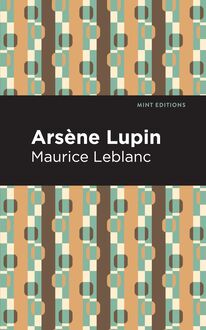-
 Univers
Univers
-
 Ebooks
Ebooks
-
 Livres audio
Livres audio
-
 Presse
Presse
-
 Podcasts
Podcasts
-
 BD
BD
-
 Documents
Documents
-
- Cours
- Révisions
- Ressources pédagogiques
- Sciences de l’éducation
- Manuels scolaires
- Langues
- Travaux de classe
- Annales de BEP
- Etudes supérieures
- Maternelle et primaire
- Fiches de lecture
- Orientation scolaire
- Méthodologie
- Corrigés de devoir
- Annales d’examens et concours
- Annales du bac
- Annales du brevet
- Rapports de stage
La lecture à portée de main
Vous pourrez modifier la taille du texte de cet ouvrage
Découvre YouScribe en t'inscrivant gratuitement
Je m'inscrisDécouvre YouScribe en t'inscrivant gratuitement
Je m'inscrisEn savoir plus
Vous pourrez modifier la taille du texte de cet ouvrage
En savoir plus

Description
Why Paul Ferroll Killed his Wife (1860) is a novel by Caroline Clive. Published to widespread critical and commercial acclaim, Paul Ferroll gained comparisons to Jane Eyre and predated the rise of popular detective fiction, but has since been largely forgotten.
Five years after its publication, Clive returned to the themes which made Paul Ferroll successful; through close analysis of Victorian social conventions and a skillful use of Gothic horror, she produced Why Paul Ferroll Killed his Wife, a sequel in theme as opposed to narrative. Rather than reprise the characters of her last novel, Clive sought to emphasize the universality of tension and violence in the relationships of men and women by creative a separate scenario capable of expanding upon the first. In this novel, she investigates the motives that lead to murder, illuminating the condition of the male psyche with expert precision.
A gathering convenes at an English country estate for a summer of rest and relaxation. Leslie, an Oxford student, joins his sweetheart Laura for walks in the woods and dinners with friends and family. Intending to ask for Laura’s hand in marriage, Leslie is entirely unprepared for the arrival of Elinor, a young woman on leave from a convent in Brittany. As his feelings for this religious, reclusive figure grow, he finds himself questioning his heart while slowly losing control of his formidable, yet vulnerable mind.
With a beautifully designed cover and professionally typeset manuscript, this edition of Caroline Clive’s Why Paul Ferroll Killed his Wife is a classic of English literature reimagined for modern readers.
Sujets
Informations
| Publié par | Mint Editions |
| Date de parution | 09 mars 2021 |
| Nombre de lectures | 0 |
| EAN13 | 9781513278872 |
| Langue | English |
| Poids de l'ouvrage | 1 Mo |
Informations légales : prix de location à la page 0,0450€. Cette information est donnée uniquement à titre indicatif conformément à la législation en vigueur.
Extrait
Why Paul Ferroll Killed His Wife
Caroline Clive
Why Paul Ferroll Killed His Wife was first published in 1860.
This edition published by Mint Editions 2021.
ISBN 9781513278414 | E-ISBN 9781513278872
Published by Mint Editions®
minteditionbooks.com
Publishing Director: Jennifer Newens
Design & Production: Rachel Lopez Metzger
Project Manager: Micaela Clark
Typesetting: Westchester Publishing Services
C ONTENTS Chapter I Chapter II Chapter III Chapter IV Chapter V Chapter VI Chapter VII Chapter VIII Chapter IX Chapter X Chapter XI Chapter XII
I
A long gallery opening on each side to small rooms gave the inhabitants of St. C é cile’s Monastery access both to them and to the larger apartment which was inhabited by the Reverend Mother herself. This latter room was of an oblong shape, very bare of furniture, and of all kinds of decoration. The windows were without curtains; there was but one table, and on it stood a crucifix. Two benches by the wall were all the accommodation for sitting down. The one figure which occupied the chamber required not even so much, for she was kneeling in the middle of the floor, with support of no kind, and quite upright, except her head, which was bowed under the thick cloth or veil hanging over it, and which concealed even her hands.
“She is praying,” said a nun, looking into the room, “you had better wait;” and these words she addressed to a young girl who accompanied her, in the ordinary tone of conversation, such as befitted the occupations of the place.
The young girl advanced into the room, and herself went down on her knees at a little distance from the Superior, running over her beads while she waited till she might speak. She was very simply dressed in white, with parted hair, like a child, but abundant and beautiful, falling low on low shoulders and delicately rounded waist. Her face was fair, with very little colour, and the eyes, which she raised often, while she slid her beads through her fingers, had a simplicity of religious expression, such as fades even in those happy enough once to possess it, when the habits of a pious childhood come to be contradicted by those of the general world.
When the Superior rose from her knees, so did Elinor, and advanced towards the elder lady, who kissed her on the forehead, and gave a blessing. The conversation was in French, though the girl was English, for it was in a Convent of Brittany that the scene took place. It did not begin in the tone supposed to be exclusively that of Lady Abbesses.
“Has Louisa finished the marking of all your shifts, my dear? Are they ready?”
“Yes, dear Mother, and packed up,” said Elinor.
“And have you heard whether Madame N é otte is come.”
“Yes, that is what I came here to tell you, as you desired.”
“Then to-morrow you leave us,” said the Superior, in a melancholy voice.
“It is you who have determined it,” said Elinor.
“Ah, my child! your guardian believes it best; it is his doing.”
“And I shall come back,” said the girl.
“No, dear, you will never do that. I know your feelings better than you do. It will be a hard parting with us all, but when you are away you will be glad. You will enjoy the world, you will choose it, and you will be welcome in it. No; you will never wish to come back here. I have known many gentle girls like you, who could not find what they wanted here. They require to be carried along—not to walk alone, as in a convent.”
“Am I one of those,” said Elinor, catching hold of the Abbess’s hand and passionately kissing it; “I who have been so happy?”
“And have made us all happy—but you must go. Sit down a little while, let us talk for the last time. The world is full of snares, my dear.”
“What are they?” said Elinor. “What will they tempt me to do?”
“Vanity, the pride of life, the lusts of the devil,” answered the Superior. “You must be prepared for all. Some will pretend that you have beauty; some will praise your voice, as if you were a musician; some will talk to you of the world—and all, all for their own bad ends.”
“What are those ends?” asked Elinor, again.
The Abbess, was a little puzzled. “Man,” said she, solemnly, “is a creature going about to devour. Listen not to him, go not near him, keep him far from you. He will hurt you, he will destroy you; you have already learned this; now is your time to practise. Keep your eyes from his face, keep your speech from his commerce. One day it may come to pass that your guardian may select one who is to be your husband. Then submit yourself to the will of your superiors, and adopt the state of life which shall be allotted you; but till such a fate is brought to your door, remember that a maiden must keep her finger on her lips and her heart full of thoughts holy and virtuous, avoiding the very shadow of sin.”
Elinor was set thinking what these sins could be; but she resolved, at all events, to do right, and to keep the precepts of her early friend in her memory.
She continued talking with the Reverend Mother as long as convent duties permitted; then, for the last time, partook the Evening Service and assisted to make the vesper beautiful by her exquisite voice, against the world’s estimation of which the Superior thought she had successfully warned her.
She rose that night for Vigils; and next morning was up at Matins—the last time of doing these duties making them seem to her as if she would fain never cease to do them; and when the hour for her journey arrived, the wrench of the first roots she had ever struck in hearts and places, overwhelmed her with a girlish sorrow, which, fortunately, was not put to such proof as an offer to remove it would have been; for there is no saying how her wish to remain in the Convent would have been modified, if the chaise into which she so sobbingly stepped had been ordered back into its old remise .
II
O n the English side of the Channel, which our heroine was about to cross, a different scene was passing in the early life of one of the opposite sex.
A young man, four years older than Elinor (who was just seventeen), had passed that summer a triumphant Examination at Oxford, and heaped on himself every honour which it was possible for its young members to obtain. He had been accustomed to success ever since he became a school-boy; and he was so far from satiated by it, that he already looked upon all his achievements as mere marks of past progress, and on himself as now about to begin the career which contained objects really worthy of his ambition.
He was an orphan, never acquainted with father or mother; wholly unconscious of tender influences on his boyhood, and of domestic sympathy with his successes and desires. He had come not to want them; disappointment he had not had, and the hard measure of public applause suited him better than the fond exaggerations of home, to which he had not grown up, nor been bettered by them. Life was a fine, hard reality to him; he knew it, for evil and good, and while he destroyed every illusion as fast as they courted him, he looked keenly to its enjoyments and rated them by the vast power of pleasure within him which he shared with most healthy and active human beings.
He was passing some weeks at a country house, where his late very hard work gave zest to the summer repose in which the old place lay buried. Long, solitary, morning walks in the heavenly beauty of a hot July did his thinking faculties good, after their late stretch upon other men’s thoughts. The society of well educated women, their music, their vivacity, their fancies; the riding parties, the evenings when there was dancing, or the garden by moonlight, and the pleasure of pretending to feelings, and, as it were, acting them, for they were no better to him than a play, these things suited him for a little while, till the moment should come for executing the projects in his head which would drive all the present scene far away.
He had everything to recommend him to the world. A fine person, full of health and strength, a fortune and a place which were competent to ordinary wishes, and had been augmented by all the savings of a well managed minority; a high reputation for ability; and natural claims on certain great names for assistance in entering on his career. His manner was more taking than winning, he took hold on society as if it were his due place, and his admirable tact made him hold it gracefully, and to the delight of his companions.
These qualities and advantages had made a strong impression on the fancy of the young lady who presided over the house. She was the owner’s sister, a few years older than my hero (whom I will call Leslie, though I do not assert that such was indeed his name); she was handsome, rich, and hitherto courted by all whom she had a mind should do so. But it was not so with her present guest; he often seemed on the brink of fascination, and then, like Sampson, burst the withies like burnt flax and was as free as ever. The irritation of this state of things was excessive; she longed to break through the feminine restraints which bound her, and ask him if indeed he cared for her or not. The absolute impossibility of thus setting herself free was a galling chain, for ever working on the wounded place; and the necessity of a smiling face, and disengaged manner, at times when she was fretting at her heart’s core, acquainted her with a torment which the daughters of Eve sometimes heavily endure.
“Let us ride this afternoon,” she said, one hot but cloudy day; “the air of the house burns one.”
“With all my heart,” said Leslie; “but we shall have a storm.”
“I am not afraid,” said Laura.
“Would I were quite sure that, in fact, you have no fears!”
“Oh! I would tell them. I am very frank, I hate concealment. It is very hard on women that they are required to be liars and deceivers.”
“But that’s not the case,” said Leslie, “what is so delightful to a man as a frank, open nature which prints its thoughts as fast as
-
 Univers
Univers
-
 Ebooks
Ebooks
-
 Livres audio
Livres audio
-
 Presse
Presse
-
 Podcasts
Podcasts
-
 BD
BD
-
 Documents
Documents
-
Jeunesse
-
Littérature
-
Ressources professionnelles
-
Santé et bien-être
-
Savoirs
-
Education
-
Loisirs et hobbies
-
Art, musique et cinéma
-
Actualité et débat de société
-
Jeunesse
-
Littérature
-
Ressources professionnelles
-
Santé et bien-être
-
Savoirs
-
Education
-
Loisirs et hobbies
-
Art, musique et cinéma
-
Actualité et débat de société
-
Actualités
-
Lifestyle
-
Presse jeunesse
-
Presse professionnelle
-
Pratique
-
Presse sportive
-
Presse internationale
-
Culture & Médias
-
Action et Aventures
-
Science-fiction et Fantasy
-
Société
-
Jeunesse
-
Littérature
-
Ressources professionnelles
-
Santé et bien-être
-
Savoirs
-
Education
-
Loisirs et hobbies
-
Art, musique et cinéma
-
Actualité et débat de société
- Cours
- Révisions
- Ressources pédagogiques
- Sciences de l’éducation
- Manuels scolaires
- Langues
- Travaux de classe
- Annales de BEP
- Etudes supérieures
- Maternelle et primaire
- Fiches de lecture
- Orientation scolaire
- Méthodologie
- Corrigés de devoir
- Annales d’examens et concours
- Annales du bac
- Annales du brevet
- Rapports de stage




















